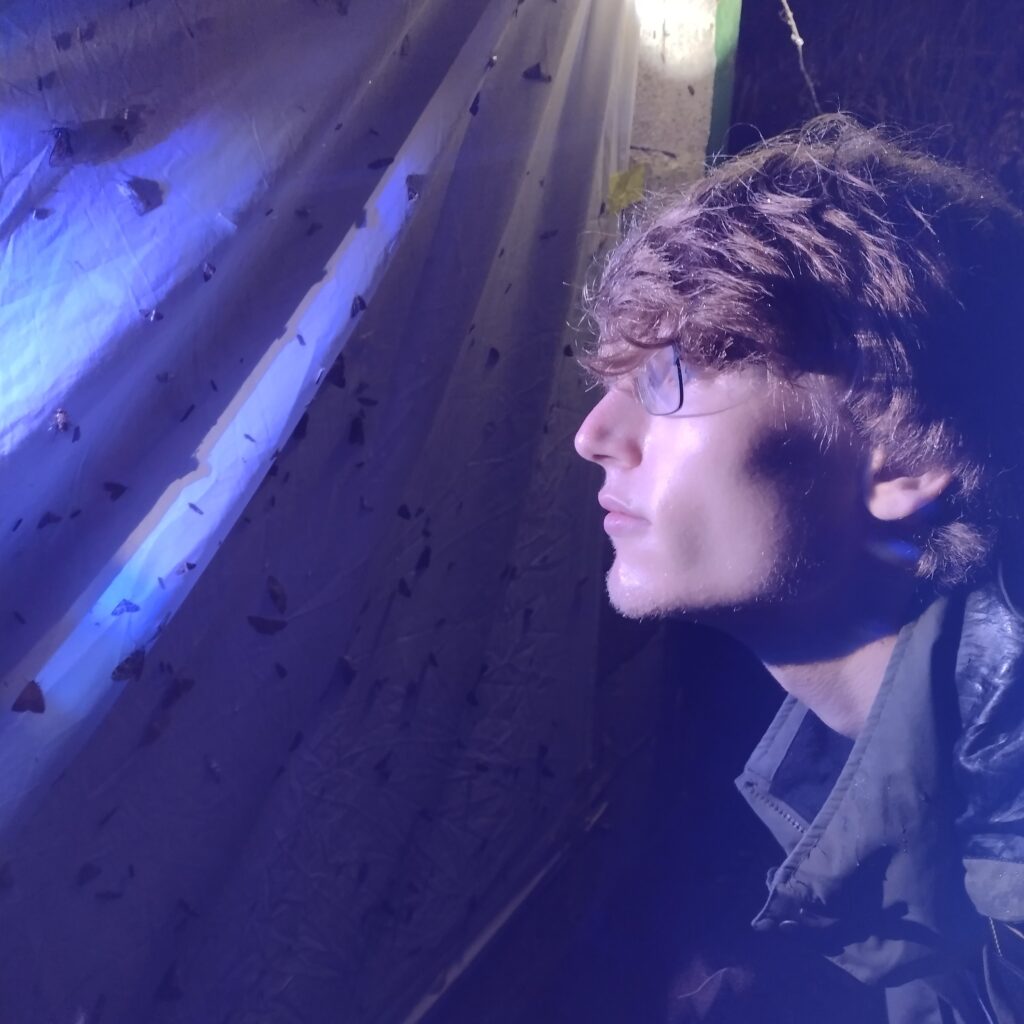Elliott Cornelius

PhD: Reclaiming the night sky for moths: what drives the flight-to-light response and how can this be mitigated?
Location: Rothamsted Research
Email: Elliott.Cornelius@Rothamsted.ac.uk
My PhD project has me based at Rothamsted, where my research will investigate the drivers of phototactic behaviour in moths. To achieve this, I will first utilise an electroretinogram to identify the visual capabilities of a range of native species, filling in crucial gaps in our understanding. This will then be used to inform the subsequent portion of my project, investigating phototactic responses in the field. Through these experiments, I hope to provide suggestions on how to minimise the disturbance caused by artificial lighting, and therefore contribute to insect conservation.
Prior to this PhD, I completed my Integrated Masters degree studying Zoology at the University of Exeter, Penryn Campus. My studies centred around ecology and conservation, and over the duration of my time there, I found myself developing a specialism towards entomology. My involvement in the local moth-trapping community no doubt played a role in this. My academic interests were solidified during my dissertation project, which investigated the impact of artificial lighting on the activity levels of moths, considering both the spectrum and intensity of light exposure. Through this project, I gained valuable insight into the issues associated with light pollution, which will prepare me well for this next stage in my research career.
